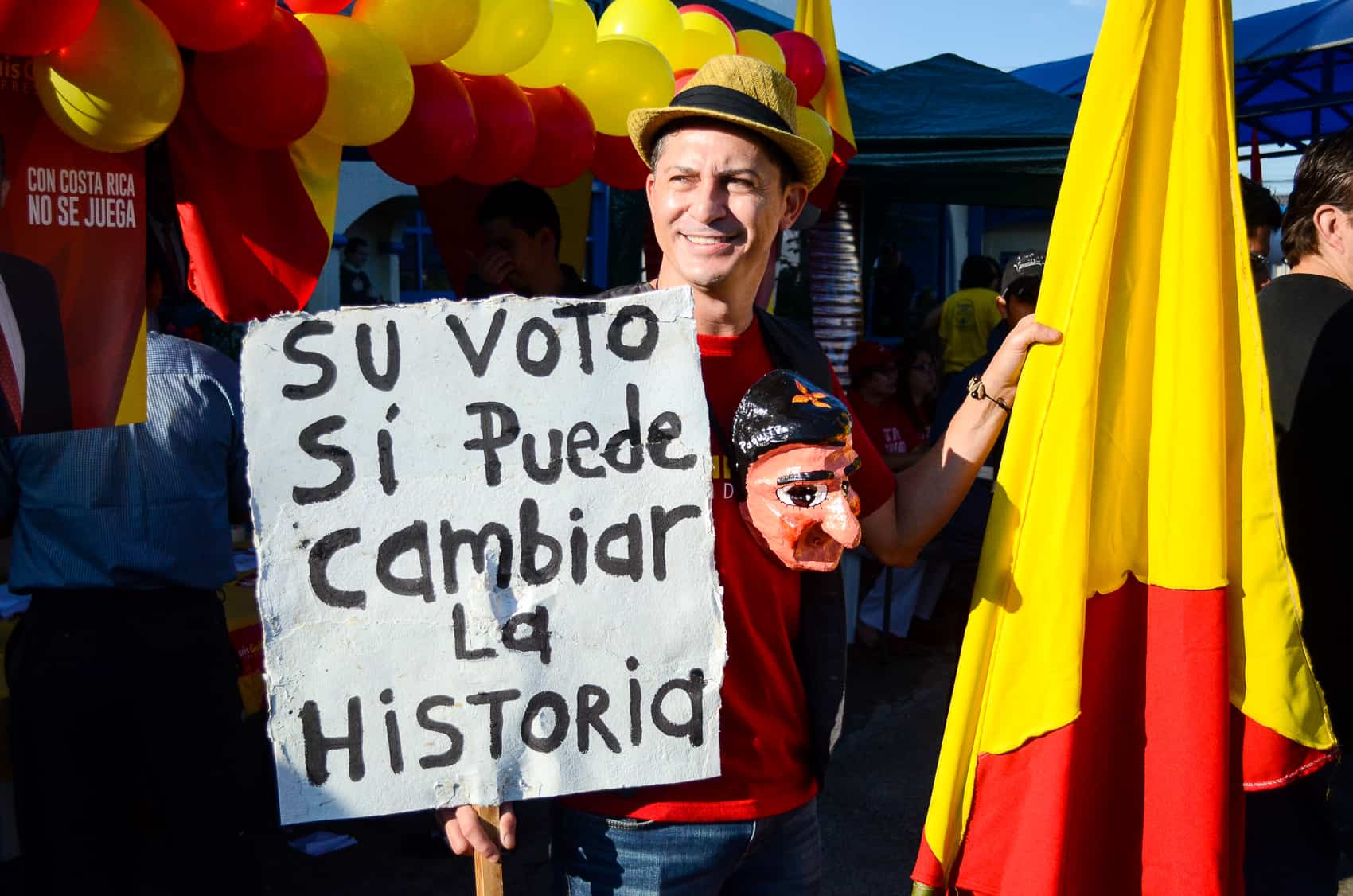Let’s assume it’s a fact that Costa Rica will vote for its next president for the first time in our history on Easter Sunday, the day on which practicing Christians celebrate Jesus’s resurrection and the day on which everyone else is recovering from their Holy Week vacation.
Because of the whims of life, as if religion and politics were not already sufficiently intertwined, on this occasion voting in the probable second electoral round to choose the next president – a runoff that must take place if no candidate reaches 40 percent of the vote in the first round – in February will take place on Sunday, April 1..
Let’s assume that there’ll be second round for a third time in our history. All the elements suggest it, even if it’s too early to foretell the two contenders. Just look at the poll published this Wednesday by Semanario Universidad, conducted by the University of Costa Rica’s (UCR) Investigation and Political Studies Center (CIEP), which is the most complete study available to those of us eager to understand voters’ whims, fears or suspicions of this democracy.
Forty percent of the vote would be reached only if we apply a bit of a curve to the group of indecisive voters (37 percent of those who plan to vote); the three candidates atop the competition are more or less in a three-way draw. We’re talking about Antonio Álvarez’s 15 percent (declining) plus Juan Diego Castro’s 15 percent (increasing, even if it’s hard to believe) and Piza’s 11 percent (anchored and vulnerable to the suspicions that his PUSC party is also to blame in the “cementazo”).
CIEP’s investigators warn that there are vote flows that come and go and that no one can rest on his laurels. Or the front-runners’ low polling numbers could be seen in a positive way: any candidate could get a boost and make it into the second round, included those who have less than 6 percent of the intention of votes, such as Carlos Alvarado of the ruling Citizen Action Party (PAC).
What does seem clear is getting to the second round on Easter Sunday. Popular backing is weak for the candidates; in other words, it’s scarce and volatile. The parties have not been able to take advantage of Costa Ricans’ hunger for political participation, judging from the polls.
Despite the anger that the “cementazo” has provoked against politicians, the people still want to vote. During the last month the intentions to vote passed from 58 percent of the population to 66 percent, if we extrapolate from this poll’s results. This is very valuable: it shows that electoral traditions are ingrained within ticos, no matter what happens.
Costa Rica’s cement scandal isn’t over, but public trust is unquestionably damaged
The problem is that in the last month the quantity of people who want to vote has increased as the indecisive group is now figuring out how to vote for someone, God knows for whom. Right now, in November – three months away from the elections on February 4 – there are more indecisive people willing to go to the urns than in October.
We can compare this landscape with a hungry crowd that goes to a food plaza willing to enjoy lunch, but nothing appeals to them. Many will postpone the decision until the restaurants are about to close and will then eat whatever’s there because there’s no other option. Maybe others will hold on to their hunger and will go home frustrated, lamenting that there were no options for them.
Many will say that it’s normal to have so many undecideds this late in the game, but the fact is that there have never been so many people in that category only three months away from a Costa Rican election.
For every four undecideds in November 2013, there are five in November 2017, and it’s not because they’ve distanced themselves from politics. People are still searching for their favorites, but the political offerings are very poor. The menu is ample (13 candidates), but poor in quality. The diners have become more sophisticated, and the buffet is lined with simple dishes and junk food.
Some parties work their candidates like a franchise; others nominated whoever they could given their internal divisions; and other candidates seem to have run because, diay, no one else had the courage to do so. A separate case is the one of Castro, the media-savvy lawyer who tries to pick up on political disenchantment through bombast and stirs up the race, but doesn’t enrich it.
Is there someone to vote for? I prefer to set up the question differently: is there a reason to vote? Each person will have reasons for it, choosing whom they believe to be the best or discarding candidates until they reach the “menos malo,” the least bad, and may the Resurrected Christ protect us.
Read Alvaro Murillo’s “No Sugar, Please” columns here.
Álvaro Murillo is an experienced journalist who specializes in political coverage and has written for La Nación, Semanario Universidad and El País. In his Tico Times column “No Sugar, Please,” he explores politics in its broadest terms, from the halls of government to community life. Connect with him on Twitter.






